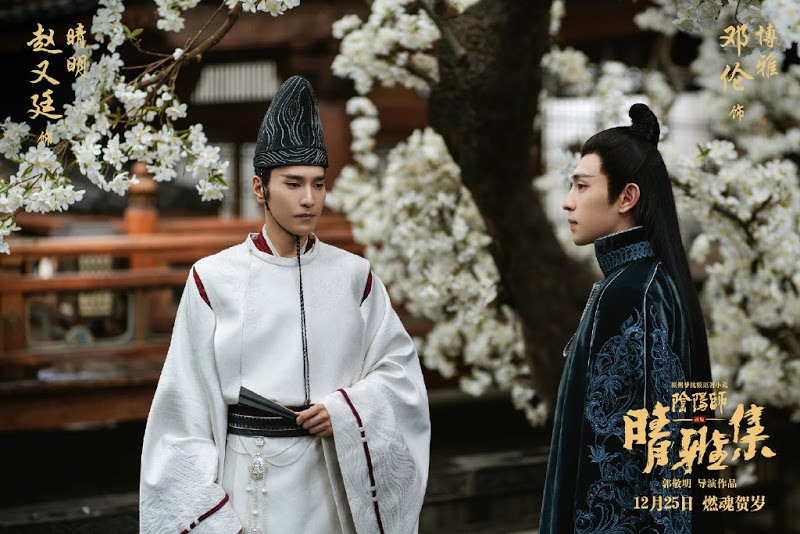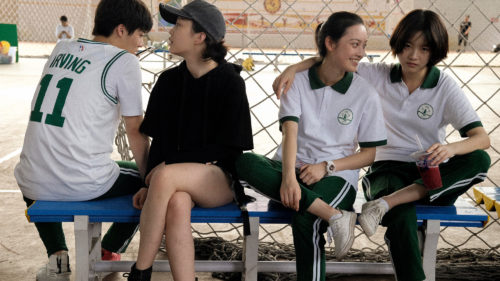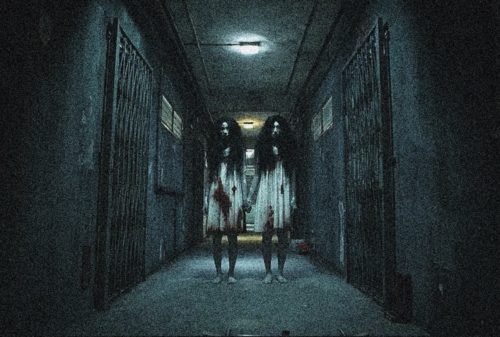Heartthrob novelist Guo Jingming’s new movie mysteriously pulled from cinemas after he apologizes for early-career plagiarism
As of now, no official reason has been given for the sudden removal of the film, but many people believe that it’s related to a plagiarism scandal in Guo Jingming’s early career.

A little over a week into its wide release, The Yin-Yang Master: Dream of Eternity (晴雅集) — a historical fantasy action film written and directed by the best-selling author Guō Jìngmíng 郭敬明 — has been yanked from movie theaters across China. Born in 1983, Guo rose to nationwide fame with a series of sappy fantasy novels that appealed to teenagers and twentysomethings, and became a multimedia publishing and filmmaking phenomenon.
As of now, no official reason has been given for the sudden removal of his film, but many people believe that it’s related to a plagiarism scandal in Guo’s early career, which resurfaced recently and led to a “long-overdue public apology” on the last day of 2020.
Since its premiere on December 25, the feature, which tells the story of two evil-spirit-slaying Yin-Yang Masters, has earned more than 450 million yuan ($69.7 million) at the box office. It’s based on the blockbuster novel Onmyoji by Japanese writer Baku Yumemakura, who gave Guo the rights to develop a cinematic adaptation.
A blockbuster interrupted
The movie was on track to become Guo’s highest-grossing movie ever — and possibly the most acclaimed, given the largely positive feedback from critics during the short time it was in theaters. But on January 4, tickets for the film suddenly became unavailable on various online booking platforms. Several cinema owners told (in Chinese) financial magazine Blue Whale Media that the authorities had ordered them to stop showing the movie, starting on January 5. None of them was given an explanation.
Later on January 4, the movie’s official Weibo account posted a message that seemed to be an acknowledgement of the abrupt change of course. “We promised you an encounter with Qing Ming and Bo Ya and we are grateful for your companionship. No regrets in life. We take pride in our service,” the post read.
The hasty decision was a major financial blow to Guo and the movie’s investors, who put about 300 million yuan ($46.5 million) into producing the film, not counting marketing and distribution costs.
Guo’s movie was not the only one to suffer a forced departure from cinemas in the last week. Over the weekend, Chinese action comedy Bath Buddy, which entered theaters on December 12 and has since pulled in over 400 million yuan ($62 million), was suddenly dropped by exhibitors. Its short run in theaters was not a complete surprise, though. Early on in its production, the movie’s producer and distributor, Wanda Pictures, was accused of copyright infringement by a Korean media company, which complained that the film was a rip-off of its intellectual property.
However, the controversy surrounding The Yin-Yang Master is a totally different story. While it contains similarities to other movies such as the 2016 Marvel superhero film Doctor Strange, Guo actually bought the rights to remake the original novel for big screens.
Remembrance of sins past?
In search for a reason for its removal, many internet users and industry insiders pointed to a scandal from earlier in Guo’s career, where he was accused of plagiarizing his second novel, Never Flowers in Never Dreams, from In and Out of the Circle by Zhuāng Yǔ 庄羽. While a court ruled in 2016 that Guo and his publishing house had to pay Zhuang 200,000 yuan ($30,997) in compensation for taking her ideas, the 37-year-old high-profile writer never admitted to any wrongdoing until last week.
In a lengthy New Year’s Eve post (in Chinese) on Weibo, Guo — for the first time in his decades-long career — apologized to Zhuang and admitted his mistake. “This special year has brought me a new understanding of life, making me realize that I owed many people a long-overdue apology,” he wrote. “I want to sincerely apologize to Zhuang Yu for the harm I caused her. I want to apologize to the public and all the authors who worked hard to create such a healthy environment for content creating. I’m sorry that I set a bad example.”
For some people, however, the apology came too late. Earlier in December, more than 100 insiders from the Chinese entertainment industry had signed a joint letter threatening to boycott Guo for showing no remorse for his crime. Calling him an “intellectual thief,” the letter noted that Guo had made frequent appearances on variety shows and urged them to stop giving him “undeserved” publicity.
The prematurely halted run of The Yin-Yang Master has made many of Guo’s detractors believe that the petition actually worked. On Weibo, the news has been met with mixed reactions. While some people applauded what they saw as a “delayed punishment” of Guo’s misdeed, others thought that Guo deserved a second chance and that the decision was unfair to other people involved in the movie.






